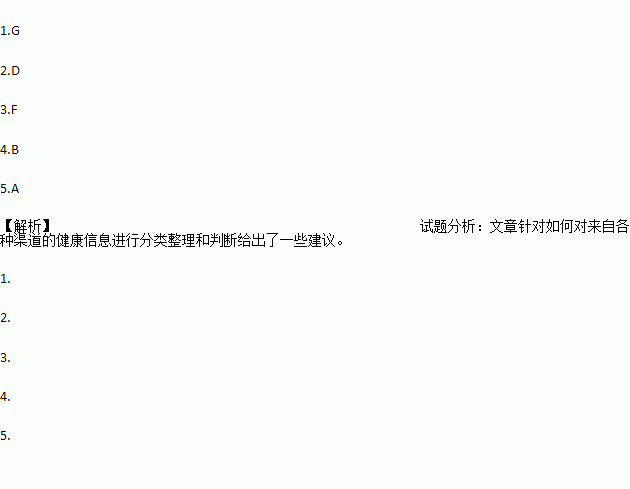题目内容
Evaluating Sources (来源) of Health Information
Making good choices about your own health requires reasonable evaluation. A key first step in bettering your evaluation ability is to look carefully at your sources of health information. Reasonable evaluation includes knowing where and how to find relevant information,how to separate fact from opinion,how to recognize poor reasoning,and how to analyze information and the reliability of sources.1.
Go to the original source. Media reports often simplify the results of medical research. Find out for yourself what a study really reported,and determine whether it was based on good science. Think about the type of study.2.
Watch for misleading language. Some studies will find that a behavior “contributes to” or is “associated with” an outcome;this does not mean that a certain course must lead to a certain result. 3. Carefully read or listen to information in order to fully understand it.
Use your common sense. If a report seems too good to be true,probably it is. Be especially careful of information contained in advertisements. 4. Evaluate “scientific” statements carefully,and be aware of quackery(江湖骗术).
5. Friends and family members can be a great source of ideas and inspiration,but each of us needs to find a healthy lifestyle that works for us.
Developing the ability to evaluate reasonably and independently about health problems will serve you well throughout your life.
A.Make choices that are right for you.
B.The goal of an ad is to sell you something.
C.Be sure to work through the critical questions.
D.And examine the findings of the original research.
E.Distinguish between research reports and public health advice.
F.Be aware that information may also be incorrectly explained by an author's point of view.
G.The following suggestions can help you sort through the health information you receive from common sources.
 名校课堂系列答案
名校课堂系列答案
